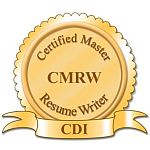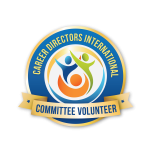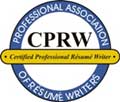 I had a long conversation with a client a few weeks ago. The man had been out of the work force, by choice, for several months and was ready to enter the work-a-day world once again.
I had a long conversation with a client a few weeks ago. The man had been out of the work force, by choice, for several months and was ready to enter the work-a-day world once again.
So far his job search strategy consisted of putting together his own resume, having a few friends tell him it was perfect (not sure how many hiring authorities in that mix …) and posting it on a major job board. Oh yeah. He’d make a few calls to let people knows he’s ready to jump back in the fray.
He went on to say his phone rang the first few weeks after posting. The hits he was getting weren’t “quality” (his word) jobs and activity had pretty much died off after the first few weeks. When traffic died, he did take advantage of The Ladders’ free resume critique. I’ve seen Ladders critiques before. Sometimes they’re offer solid advice; sometimes they’re way off; all the time they’re selling they’re services …, as a business should. The critique lead him to me.
Any who. This one conversation gave me blog topics for a month – approach, expectations, methods, effort, using professional references. Most disturbing to me was his reliance on the job boards to “find him a job.”
Let me preface the rest of this post with a disclaimer. What follows is my personal opinion, based on my professional experiences. You might have a different take on the subject and I welcome a broader perspective in the comment section. So here goes …
I tell my resume clients: “Don’t post your resume on ANY of the ba-jillions of job boards out there on the net.” What?????? <Gasp> Don’t post??????? I continue, “Of course, if it’s between you living in a box and eating canned cat food and posting your rez, then ‘Katie bar the door’ post it everywhere and anywhere.” However posting your resume to a job board is a last resort, not as a first step strategy. I repeat: POSTING YOUR RESUME TO A JOB BOARD IS A LAST RESORT, NOT AS A FIRST STEP STRATEGY. (And in a shameless plug for my profession, if you’ve had your resume prepared by a professional, it’ll never get to that point.)
INSTEAD, use the boards as tool. They’re a powerful search method in finding your dream job, when used correctly. Set up job alerts everywhere, especially on the compilation sites like www.linkup.com and www.indeed.com (to name two). Conduct a targeted search. Carefully read the job posting and tweak your rez to mirror key words and skills required for the position. After you’ve done that, write a brief, personalized cover email telling the recipient (even if the recipient is a blind address or PO Box) why you’re making contact and apply for the job. Remember, the recipient is getting hundreds of responses. They won’t guess about what you want. It takes a little more effort on your part, but throwing your resume up on, say, The Monster and sitting back waiting for the phone to ring is nuts. You’re looking at about a 2% success rate using a post and hope strategy. Many, many jobs on the big boards are posted by recruiters. Responding to jobs within your skills set usually ensures you’ll find a recruiter with contacts in your industry.
And there’s the safety factor. Think about it. If you’re employed, you’ve told anyone with access where you are from 9 to 5 everyday, and that you’re not home. (Sure, hiring users of the boards are probably 99.9% legitimate, but it only takes one …) You also gave them your address. If you choose to leave out your address and use a landline as a contact, the number can be Googled, revealing the address; finding addresses via cell phone numbers can’t be that far behind, if not already available. If you post anonymously, you better do a kick-butt job of skills presentations or have very specialized talents to grab attention because your audience is flying blind about you in every other way. {For more safety concerns and great advice, read Tiffany Monhollon’s blog post, “25 random things you don’t want to share on line even if you think it’s safe.}
And of course, there’s loss of exclusivity. Successful recruiters have exclusive candidates. Recruiters aren’t the do and end all to your search, but they can play a very important role. I’ve been on several recruiting sites and seen statements saying something to the effect of “We’ll never present a candidate you could have found yourself.” This could mean, post to the boards and you’ve shut yourself out to an awesome professional network. (NOTE: Recruiters don’t find jobs for people … they find people for jobs. Big difference.)
And last but not least is the refresh requirement. Huh? Refresh requirement? Well, having been a professional recruiter for several years, I’ve been on “the other side” of job board searches. When searching through millions of resumes on these huge boards on the Web, you use very detailed filters, looking for key words, degrees, credentials, affiliations, etc. and here’s the big one, how long ago the resume was posted. My searches usually included filters for candidates that posted in the past 10-14 days. Considering the average search takes about one month for every $10,000 annual income you seek, can see how ineffective that time window is for you? But, can you also see how targeted it was for me as a recruiter? (Remember, this is MY end of the search) I usually found candidates that were fresh and not working with lots of other recruiters, increasing my chances of a placement. Think waaaaaaay back to the beginning of this article – I know, I’m long winded tonight, but I’m passionate about this topic – my client said he got calls for a few weeks then they dropped off to nothing. I’d say that’s proof recruiters and hiring authorities are using that same strategy today.
If, in spite of what I said, you insist on posting, this is how you get around the problem. Go into your posted resume as if you’re going to edit and resave it. The boards repost it back at the top of the list with the current date. But think about it. It’ll take you 3-5 minutes every two weeks to manage your posting — longer if you’re posting to lots of boards, and if there’s lots of boards, you have to keep up with where they are and when you last refreshed … oh my, this task is growing! Rather than invest time in mundane busy work, aren’t you better served spending time tweaking your rez and cover letter and responding to positions you want?
Use the boards as a tool not your primary search method. I liken posting to the boards and waiting for the phone to ring with that perfect opportunity to sitting on the couch waiting for Prince Charming to ride up the driveway. Could happen … but doubtful! And don’t’ even start me on resume blaster services …


 I had a long conversation with a client a few weeks ago. The man had been out of the work force, by choice, for several months and was ready to enter the work-a-day world once again.
I had a long conversation with a client a few weeks ago. The man had been out of the work force, by choice, for several months and was ready to enter the work-a-day world once again. How often have you heard me say the job search process is “all about them”? Or the flip side of that, “it’s not all about you”? For the sake of argument, trust me, it’s been a lot. Remember that as I share this story …
How often have you heard me say the job search process is “all about them”? Or the flip side of that, “it’s not all about you”? For the sake of argument, trust me, it’s been a lot. Remember that as I share this story …

 So, if you’re unsure what you want to be when you grow up, or what you want to do for the next five minutes for that matter, network with people doing the job you think you want to do. Offer to buy them coffee or lunch and ask for the privilege of picking their brain for an hour about the nuts and bolts of their chosen profession. Come with prepared questions, respect their time, don’t turn it into a “help me find a job” conversation and you’ll be amazed at the info you’ll garner.
So, if you’re unsure what you want to be when you grow up, or what you want to do for the next five minutes for that matter, network with people doing the job you think you want to do. Offer to buy them coffee or lunch and ask for the privilege of picking their brain for an hour about the nuts and bolts of their chosen profession. Come with prepared questions, respect their time, don’t turn it into a “help me find a job” conversation and you’ll be amazed at the info you’ll garner. 












